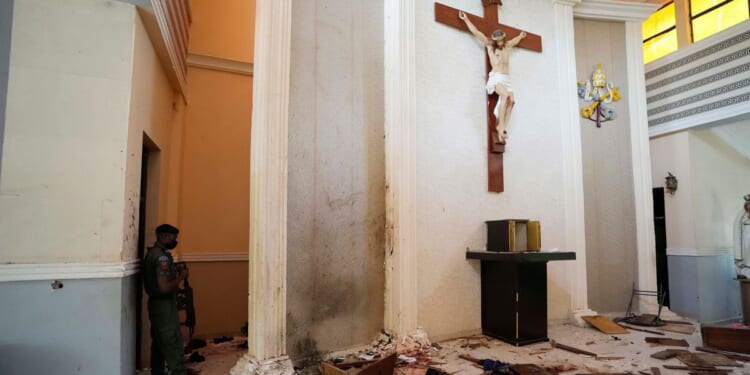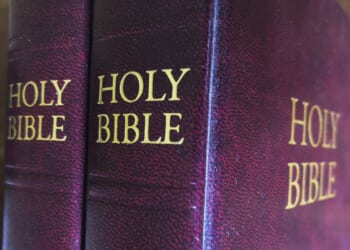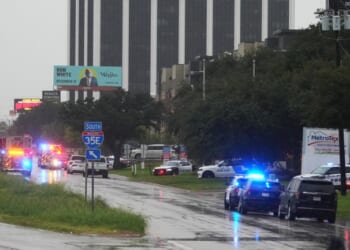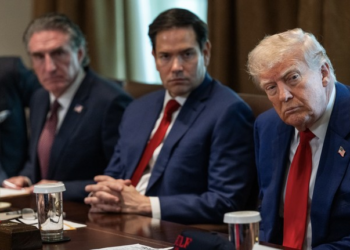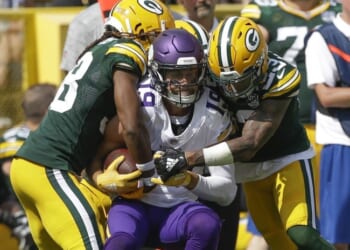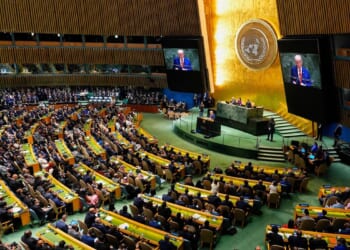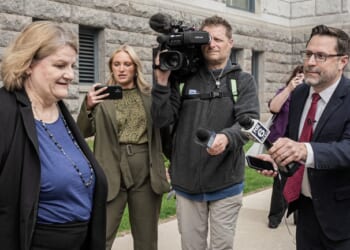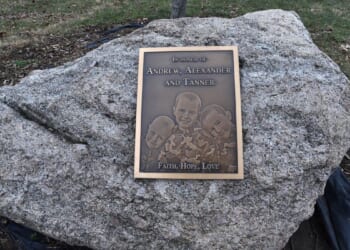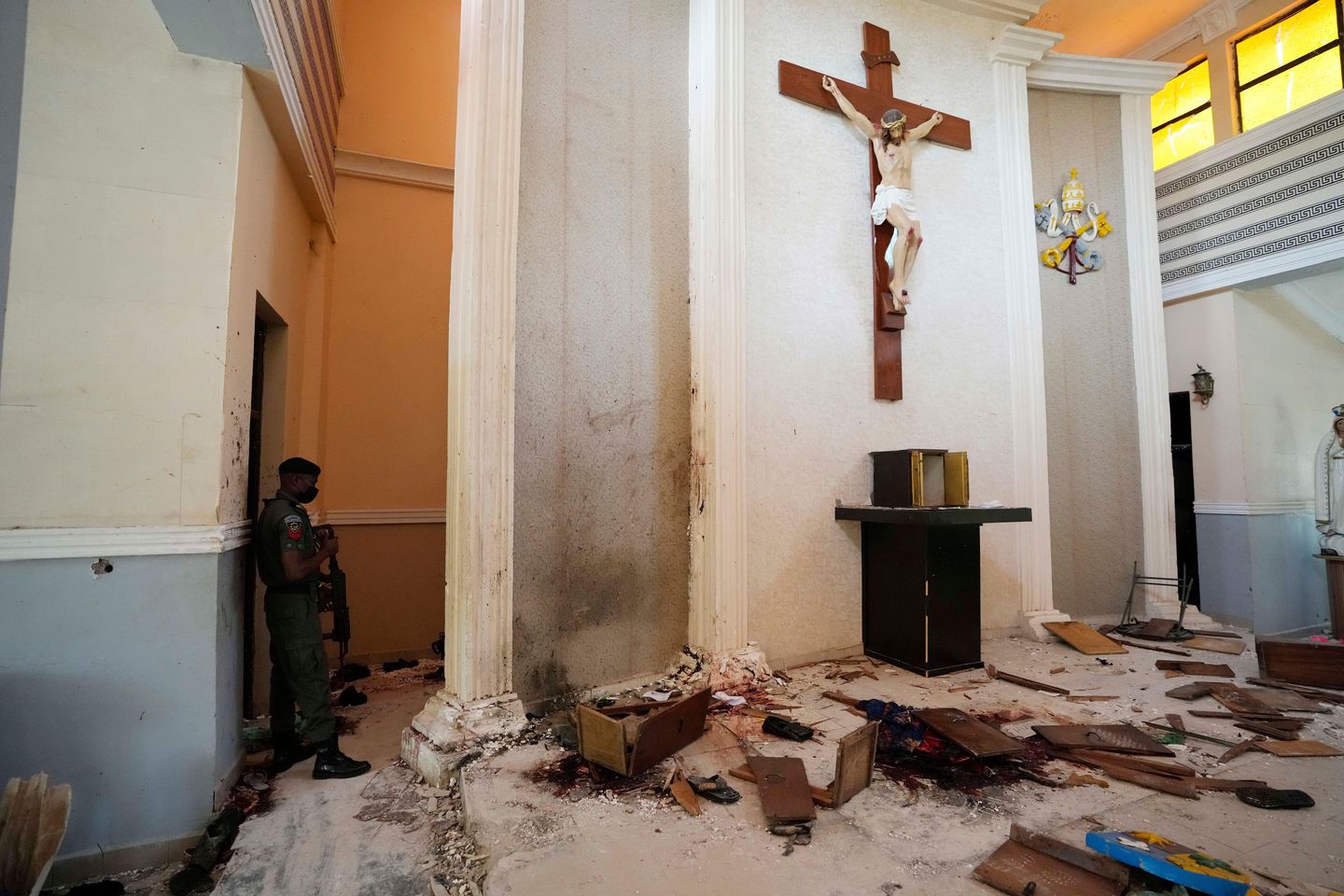
Nigeria remains the deadliest place on earth to be a practising Christian. More believers are killed there every year than in the rest of the world combined, a Catholic prelate from Nigeria told lawmakers in Congress on Thursday.
Bishop Wilfred C. Anagbe said violence against Christians in the West African country is rampant, particularly from Islamist groups like Boko Haram and the Islamic State West Africa Province. A recent report from the Nigeria-based International Society for Civil Liberties and the Rule of Law says jihadists are destroying at least 100 churches every month. At least 7,000 Christians in Nigeria have been killed so far this year, according to their study.
On Tuesday, gunmen attacked a church in central Nigeria, killing at least two people and kidnapping the pastor and some church members. The assault, which remains under investigation, comes only days after 25 girls were abducted from a boarding school.
Bishop Anagbe said several of his own relatives were killed in May 2025 when jihadists attacked his home village. The attackers sacked the local Catholic parish and a nearby convent, displacing the nuns there. They shot one of his priests and left him to die in a pool of blood while abducting people who were travelling with him.
“Although he survived the attack, he is unable to walk freely,” Bishop Anagbe testified during a hearing of the Africa subcommittee of the House Foreign Affairs Committee. “This is the daily experience of many Christians in Nigeria. Violence is spreading southward, displacing millions and destroying farmland, creating a humanitarian crisis compounded by food insecurity.”
Although some describe the situation in Nigeria as a genocide or a campaign of ethnic cleansing, officials in the capital city of Abuja view it as a complex crisis affecting people of all faiths. They said violence in Nigeria can be triggered by resource disputes, political power struggles, and banditry.
Thursday’s congressional hearing followed President Trump’s decision to redesignate Nigeria as a “country of particular concern” over its human rights record, particularly because of what Bishop Anagbe and others say is a genocide being committed against Christians.
Nigeria’s population of about 220 million is split almost evenly between Muslims, who live predominantly in the north, and Christians in the south.
Rep. Chris Smith, a New Jersey Republican who chairs the Africa subcommittee, said he applauded President Trump’s decision to redesignate Nigeria as a country of particular concern for tolerating and even engaging in severe violations of religious freedom.
“Nigeria is Ground Zero, the focal point of the most brutal and murderous anti-Christian persecution in the world today,” he said. “Moderate Muslims who speak out against the radical Islamists or refuse to conform with the serial killers are murdered as well.”
Many of the attacks against Christians in Nigeria are blamed on the mostly-Muslim Fulani militia, Mr. Smith said.
“They kill and boast about it. They kidnap and rape, and they enjoy total immunity from elected officials,” he said. “None of them have been arrested and brought to justice.”
Ambassador Jonathan Pratt, Washington’s former envoy to Djibouti, said jihadists in June attacked a Christian village in north-central Nigeria armed with guns and machetes.
“They set homes and food stores ablaze and locked families inside burning buildings, killing over 200 Christians,” he said. “Witnesses reported assailants shouting ‘Allahu Akbar’ as they assaulted St. Joseph’s Church.”
Rep. Sara Jacobs of California, the top Democrat on the Africa subcommittee, said several factors impact the violence and instability in Nigeria, rather than solely the persecution of Christians.
“Yes, ethnicity and religion play a role in some cases, but other dynamics like poor governance, resource competition, climate change, and population pressures are important drivers that need to be addressed,” Ms. Jacobs said. “The violence impacting both Christian and Muslim communities is real, and the Nigerian government can and should do more to address it.”
Nina Shea, a senior fellow at the Hudson Institute, told lawmakers that she agreed with President Trump’s decision to name Nigeria a “country of particular concern.” She said the Fulani militia targeting Christians is operating with complete government impunity.
“By contrast, the government is fighting the terror groups in the north, whose victims include many Muslims,” Ms. Shea said.
She said officials in Washington were appalled when they learned that Bishop Anagbe’s home village was attacked by Fulani militants. It occurred soon after his previous testimony to Congress about the rise of sectarian violence in his homeland.
“It also raised the concern that the … attack could have been in reprisal for his testimony to Congress – one organized not simply by nomadic herders but by those in Nigeria who are close observers of Washington,” Ms. Shea said.
Deputy Assistant Secretary of State Jake McGee said the level of violence and atrocities committed against Christians in Nigeria is appalling.
“These attacks directly target Christian populations. Ample witness testimonies have confirmed that attackers used religious language during their attacks and specifically identified Christians for killing, abduction and rape,” Mr. McGee testified. “It is clear that Nigerians are being attacked and killed because of their faith, and the Nigerian government must uphold its duty to protect them.”
Bishop Anagbe said millions of displaced people remain in camps in Nigeria, unable to return to their ancestral homes. He said it threatens cultural continuity as well as religious and economic survival. Survivors of attacks continue to face ongoing threats from Islamist forces inside Nigeria, including further cases of sexual violence against girls and women.
“Destroying families guarantees that no more Christians will be born from so many traumatized women. This is one of the elements of genocide, securing the disappearances of a group by long-term measures other than murder,” he said. “Without quick intervention, Christianity risks elimination in parts of northern and middle-belt Nigeria within a very short time.”

